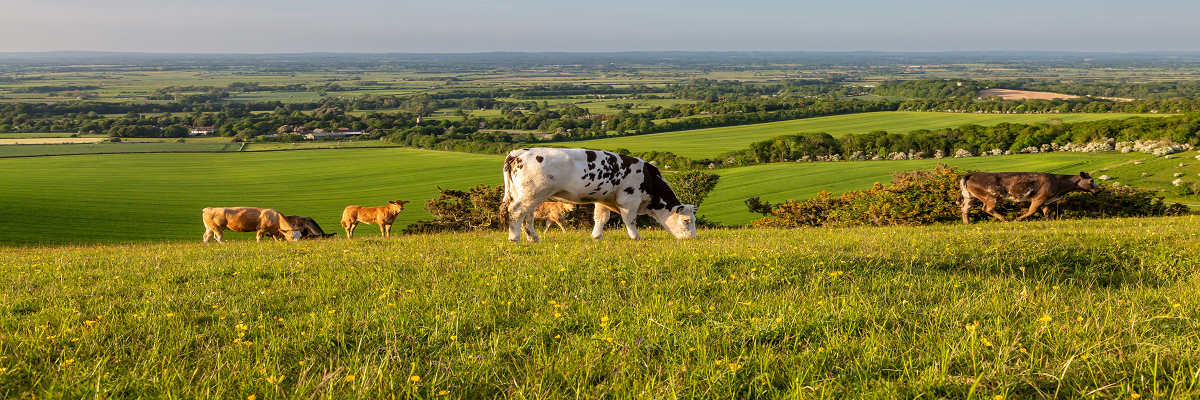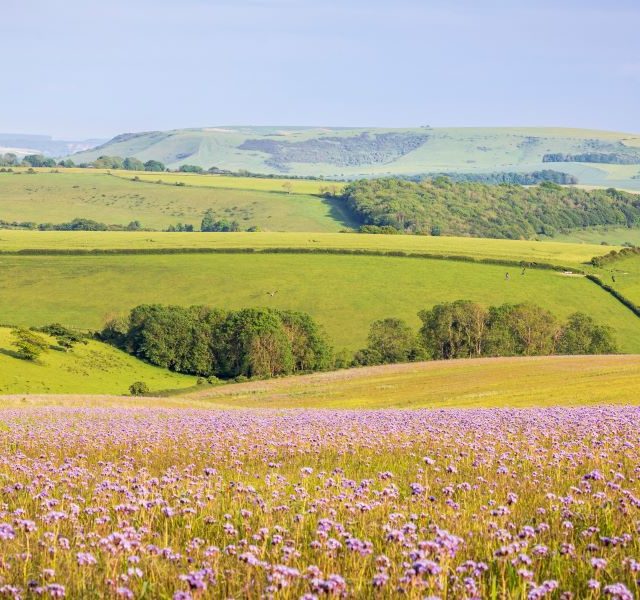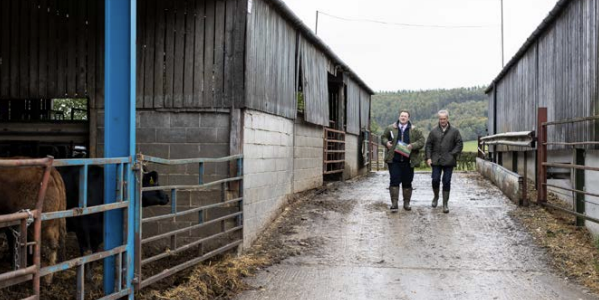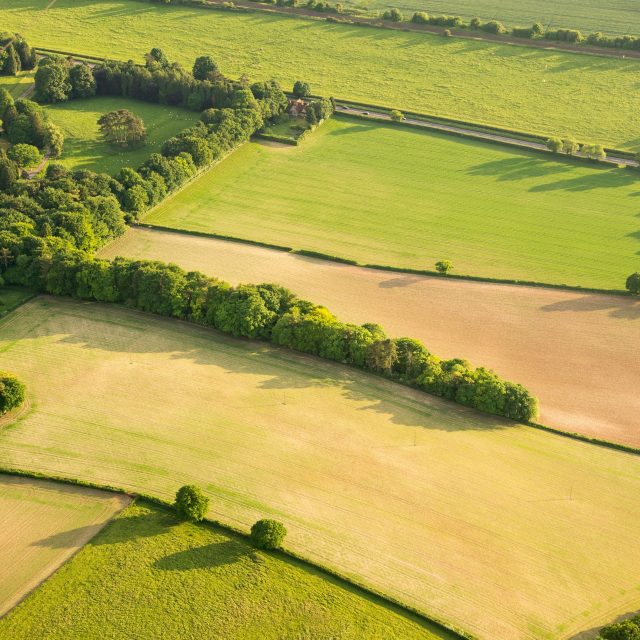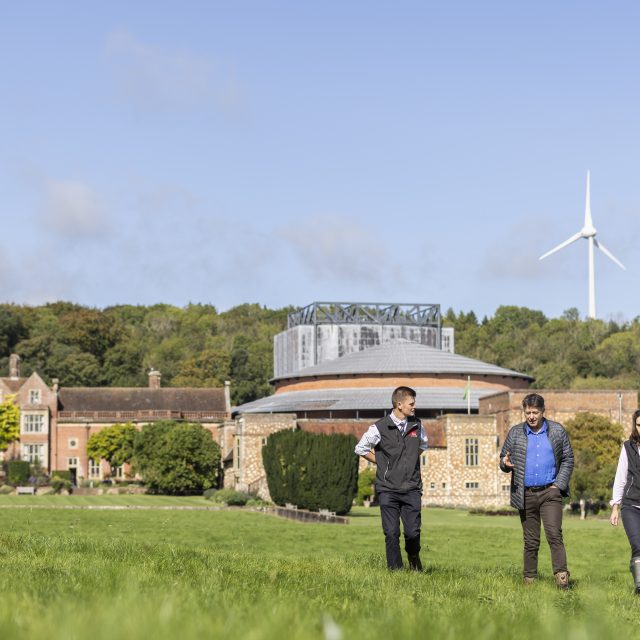What is coming down the line in terms of farming policy in 2025?
It feels like 2025 will be a big year for farming, food and land use policy.
The Government has promised to consult on and publish at least three new plans and strategies – the farming roadmap, the food strategy and the land use framework.
Plus, there is likely to be much more debate about the proposed changes to inheritance tax…
plus, a revised, long-awaited Countryside Stewardship Higher Tier scheme will be launched, with pre-application work starting this spring and agreements being offered in the summer…
plus, further reform to the planning system, including to make farm diversification easier and quicker, including for on-farm renewable energy…
plus, hopefully more firm news on the size of the budget for farming and the environment once the spending review has been concluded in June…
So lots of consultation and plans, strategies and policies that will affect land-based businesses.
What did minister Steve Reed say at the Oxford Farming Conference?
Defra secretary Steve Reed announced a ‘new deal’ for farming as he addressed the Oxford Farming Conference.
Although some commentators have criticised his speech as not containing detail on what the Government will spend on the sector (and refusing to change direction on the IHT plans), it still feels like there was a lot in the speech and it was carefully structured. Some subjects he has spoken about before – but you would expect and hope for that – but some that is new.
I liked the starting point of recognising the challenges facing the sector and recognition that (probably) everyone wants the situation to change. The minister repeated his phrase that “The straws are piling up and up – and the camel’s back is close to breaking.”
He then set out his personal track record in taking on issues and finding solutions. This was clearly designed to try to start rebuilding the relationship between him (representing the Government) and the sector.
The sector needs a clear end goal, he said.
Lots of people – me included – have been calling for this for a long time and we hope that the three new plans and strategies will set out that long-term goal, with interim targets to guide progress.
The farming roadmap should not be a surprise when it is consulted on and then published. It is likely to be based on the three strands that he has repeated for a number of months now:
- A cast-iron commitment to food production – with professional farming businesses that produce food, operating in fair supply chains and with fair access to markets, including the EU.
- More resilient farm businesses – farming businesses will be supported to diversify their activities to increase their financial resilience. The Government aims to do this through changes to the planning system to make it easier and quicker to build farm buildings, buildings for other activities and renewable energy. There will also be support to build infrastructure to reduce air and water pollution (but no detail on that yet).
- Nature as the foundation – businesses will be supported to restore nature, which the Government sees as vital to long-term food security. This will be done through continuing development of the Environmental Land Management schemes, with on-going consultation.
There are some tensions in what the Government hopes to do. One of the most obvious ones is the divergence from the EU in terms of gene editing. The Government says the difference is a matter of speed, with the UK moving faster than the EU in terms of licensing of edited plants. We will wait and see but it could delay or derail the new EU veterinary agreement that the Government says will increase trade between the two.
One of the most interesting sections for me was what he said on regulation, which was added to by his senior civil service team afterwards. There have been lots of promises from different governments about cutting red tape for farmers over the years. However, it feels like significant change in regulation may be coming and also that there is a change in tone – land managers will be made more responsible for their actions, potentially reducing the burden on those who are already following best practice and doing the right thing.
The minister said that there is a patchwork of too many regulations and that they are confusing and time consuming. He added that: “Currently many farmers are looking after their soil or cleaning up water, then look over the hedge and see others not upholding their side of the bargain.”
It feels like the goal is to for regulation to be amended, hopefully simplified and that it will be used more ‘as a lever’; the government appears to be looking at whether grants can be used to encourage compliance and whether land managers who are not complying should be able to apply for grants. This type of approach is much closer to that proposed by Dame Glenys Stacey in her review of farm inspections and regulation in late 2018.
What can we expect and how will we judge the Government’s success?
The speech shows us we can expect lots of consultation and three plans and strategies to be published this year. I think that most stakeholders are likely to agree with their broad objectives, even if they have strong objections to other areas of government policy.
The debate will be on the detail, how efficiently the plans are implemented, and how they are monitored.
We hope for much more openness and honesty about whether the funding available for farming food and land use is likely to deliver the desired outcomes, what land managers are expected to do through compliance with the regulatory baseline, and whether the sector is on or off-track to deliver the outcomes.
Consultations are likely to start this spring on all three plans and we think that finalised versions are likely to be published in the summer at the earliest, after the spending review as it will set the funding and after other plans, such as energy and planning, are agreed.
What can land-based businesses do now?
For ideas on some of the priorities for farmers and land managers in 2025 read our Outlook for 2025 – 6 key themes facing land managers blog post.
